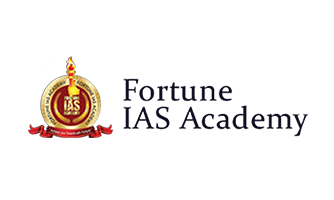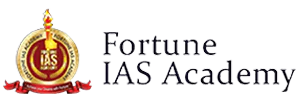
Analysis – CSE Main 2018
GS 1
- The Art and Culture questions were relatively easier compared to the previous years. The question regarding Chaitanya Mahaprabhu, although specific in nature, could have been answered using common points of all Bhakti saints. Such an approach would definitely fetch the candidate average marks. The question regarding ‘preservation of our art heritage’ was extremely generic in nature and marks would depend on how well the candidate has approached the question. The question regarding account of foreign travellers to India required specific knowledge regarding the various travellers and their accounts which are readily available in the NCERT books.
- There were no questions from the Freedom Struggle, which has always been an area of interest for the UPSC. Questions from Indian history required a rudimentary understanding of Gandhian philosophy and basic knowledge of the plight of indentured labourers which is often mentioned in all books that cover the freedom struggle. There were no questions from World History.
- Geography questions were relatively straightforward and tested the basic conceptual understanding of the candidates. Some of the questions were also dynamic in nature as they involved current affairs such as IRNSS, Industrial Corridors, depleting groundwater resources etc. Therefore conceptual knowledge coupled with general awareness of recent issues would have enabled the candidates to answer these questions.
- Questions concerning Indian Society were quite challenging and would have immensely benefited those who have a Sociology background. However, a keen understanding of current events by a thorough reading of the newspaper, especially editorials, would have equipped candidates to deal with these questions to a certain extent.
- Questions or certain themes have been repeated this year (eg- Indian secularism, India’s interest in the Arctic region, etc). Thus, going through previous years’ papers would have helped the candidates immensely.
GS 2
- Questions regarding Indian Constitution and Polity involved a good mix of static portion and also current events. While a bias towards current affairs was seen till the 2016 exam, this year’s paper struck a balance between the two
- Current affairs based questions from Polity included some very straightforward questions such as the controversy regarding EVMs, the tussle between the Delhi CM and the LG, the controversy surrounding the ToR of the 15 th Finance Commission, etc. The static questions
from Polity also covered issues such as Financial Emergency, an area which is often neglected
by candidates while preparing for the Main examination. Therefore, the seemingly obscure or
unimportant topics from standard books like Laxmikanth must be covered by candidates for
the Mains exam was well.
- The questions from the Governance section could have been answered by candidates who had gone through the report of the 2 nd Administrative Reforms Commission. The suggestion for the formation of an umbrella Human Rights Commission body, issues regarding Citizens Charters, financial capabilities of Panchayats etc are all comprehensively addressed in the specific reports of the 2 nd ARC.
- The International Relations questions were on expected lines as they reflected the uncertainties in the global sphere such as the impact of the ‘trade wars’ and the withdrawal of the US from the Iran nuclear act. Candidates while reading about these challenges must assess the specific impacts that they have on India and think of possible solutions for the same as the questions were India centric and also called for solutions. The questions also covered new and emerging relations such as with Israel and Central Asia, whose importance can be easily gauged from the increasing number of editorials that appear in the newspapers. GS 3
GS 3
- Economy based questions included current issues such as rising protectionism and currency wars along with recent Budget measures. Thus, both 2017 and 2018 exams have seen an increased importance of the Budget.
- The questions from the Agriculture and Food processing sections were quite generic in nature and required candidates to have a good grasp of the various issues and challenges and also good writing skills. However, there were also current affairs oriented questions such as organic farming (Sikkim was recently declared as an organic state), millets (2018 was declared as the International Year of the Millets). Therefore, a basic understanding of Indian agriculture, the cropping patterns and the challenges that the sector faces would have enabled the candidates to answer the questions.
- Internal security questions did not evoke much of a surprise on the candidates as they covered trending topics such as LWE, drug trafficking (Golden Triangle and Golden Crescent) and the challenges posed by CPEC. Cyber security continues to be an area of focus for UPSC especially in the wake of the Justice Srikrishna Committee report which was discussed extensively in the media.
- Environment related questions tested the candidates’ understanding of issues that have gained prominence in the recent years such as wetland conservation, solid waste management, bio diversity etc. Therefore, a thorough understanding of concepts that frequently appear in the newspapers is called for.
- There were also some tough or challenging questions. While the Bose-Einstein question would have been answered only by a very few, questions regarding biopharma and comparison between Hyogo and Sendai frameworks (Disaster Management) were also very challenging.
GS 4
- The case studies were very straightforward and easier compared to the 2017 exam, so the key differential would be how candidates were able to answer the theoretical (Part A) questions
- The Part A questions were public administration centric and required a very nuanced and in depth understanding of the various ethical issues and concerns. As the syllabus is limited and the paper has been in existence for around 5 years, candidates can continue to expect extremely challenging and analytical questions in the future as well. Only such an approach would enable them to answer questions that seek the difference between actual and potential conflicts of interest and also the difference between Code of Conduct and Code of Ethics. Reading of the reports of the 2 nd Administrative Reforms Commission would have be beneficial in this regard.
- The other questions, especially the quote based questions were also analytical and challenging and would require candidates to have good writing skills, coherence and proper time management.
Analysis – CSE Main 2018
Public Administration- Paper I
- In general, the paper was easier and more open ended compared to the previous year. Thus, it was quite similar to the 2016 paper which saw high scores in Public Administration.
- The compulsory questions, barring a few, were relatively simple and straightforward. The questions covered relevant issues and topics such as NPM, Administrative Law, Weber’s bureaucracy, Simon’s approach etc which could all have been answered by any well prepared candidate.
- While the optional questions in section B covered a myriad range of topics from Comparative Administration, Development Administration, Personnel Administration, etc, they could have been adequately addressed by a candidate who had practiced answer writing along with multiple revisions. The optional questions in Section A, however, were a bit more challenging. Here, the candidate’s understanding of concepts, his ability to inter link various disparate topics as well his general understanding of the basic subject matter were tested. The questions in this section also included relatively easy concepts such as MIS, Barnard’s Contribution Satisfaction Equilibrium etc.
- All in all, thorough preparation along with a proper choice of questions to be answered is likely to fetch a candidate good/ very good marks in this paper Public Administration- Paper II
- The questions were very generic and GS type. Therefore, the key would be to answer them from a Public Administration perspective and not to make the answers very GS oriented. (Eg- in the question pertaining to role of distract administration in mitigating climate change, knowledge of PM Krishi Sinchayee Yojana should be brought in with a focus on the preparation of District Irrigation Plans.) This would be the differential as some candidates are likely to be carried away.
- The questions also covered dynamic issues such as the setting up of the NITI Aayog, the ToR of the 15 th Finance Commission, the position of the Governor, etc
- Here again, the choice of questions made by the candidate is likely to be a deciding factor in the final scores. Those who have chosen to answer GS type questions such as the ones on TRAI and small and marginal farmers should have brought in adequate Public Administration. Similarly the ones who chose questions related to the Governor, 15 th Finance Commission etc should have comprehensively covered all the major points to ensure maximum marks as these questions are likely to be attempted to by a vast majority o the candidates.


